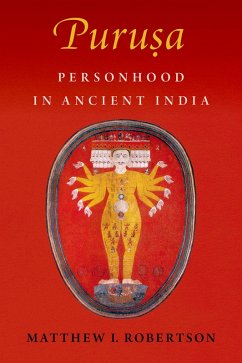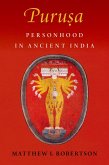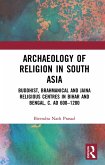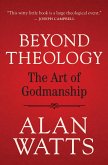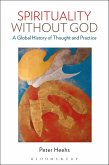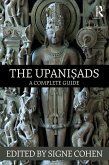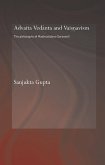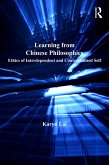Personhood is central to the worldview of ancient India. Across voluminous texts and diverse traditions, the subject of the puru?a, the Sanskrit term for "person," has been a constant source of insight and innovation. Yet little sustained scholarly attention has been paid to the precise meanings of the puru?a concept or its historical transformations within and across traditions. In Puru?a: Personhood in Ancient India, Matthew I. Robertson traces the history of Indic thinking about puru?as through an extensive analysis of the major texts and traditions of ancient India. Through clear explanations of classic Sanskrit texts and the idioms of Indian traditions, Robertson discerns the emergence and development of a sustained, paradigmatic understanding that persons are deeply confluent with the world. Personhood is worldhood. Puru?a argues for the significance of this "worldly" thinking about personhood to Indian traditions and identifies a host of techniques that were developed to "extend" and "expand" persons to ever-greater scopes. Ritualized swellings of sovereigns to match the extent of their realm find complement in ascetic meditations on the intersubjective nature of perceptually delimited person-worlds, which in turn find complement in yogas of sensory restraint, the dietary regimens of Ayurvedic medicine, and the devotional theologies by which persons "share" and "eat" the expansive divinity of God. Whether in the guise of a king, an ascetic, a yogi, a buddha, or a patient in the care of an Ayurvedic physician, fully realized persons know themselves to be coterminous with the horizons of their world. Offering new readings of classic works and addressing the fields of religion, politics, philosophy, medicine, and literature, Puru?a: Personhood in Ancient India challenges us to reexamine the goals of ancient Indian religions and yields new insights into the interrelated natures of persons and the worlds in which they live.
Dieser Download kann aus rechtlichen Gründen nur mit Rechnungsadresse in A, B, BG, CY, CZ, D, DK, EW, E, FIN, F, GR, HR, H, IRL, I, LT, L, LR, M, NL, PL, P, R, S, SLO, SK ausgeliefert werden.

